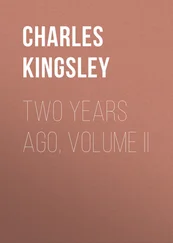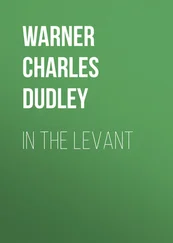Charles Warner - The Gilded Age / A tale of today
Здесь есть возможность читать онлайн «Charles Warner - The Gilded Age / A tale of today» весь текст электронной книги совершенно бесплатно (целиком полную версию без сокращений). В некоторых случаях можно слушать аудио, скачать через торрент в формате fb2 и присутствует краткое содержание. Год выпуска: 2004, Жанр: Классическая проза, на английском языке. Описание произведения, (предисловие) а так же отзывы посетителей доступны на портале библиотеки ЛибКат.
- Название:The Gilded Age / A tale of today
- Автор:
- Жанр:
- Год:2004
- ISBN:нет данных
- Рейтинг книги:3 / 5. Голосов: 1
-
Избранное:Добавить в избранное
- Отзывы:
-
Ваша оценка:
- 60
- 1
- 2
- 3
- 4
- 5
The Gilded Age / A tale of today: краткое содержание, описание и аннотация
Предлагаем к чтению аннотацию, описание, краткое содержание или предисловие (зависит от того, что написал сам автор книги «The Gilded Age / A tale of today»). Если вы не нашли необходимую информацию о книге — напишите в комментариях, мы постараемся отыскать её.
The Gilded Age / A tale of today — читать онлайн бесплатно полную книгу (весь текст) целиком
Ниже представлен текст книги, разбитый по страницам. Система сохранения места последней прочитанной страницы, позволяет с удобством читать онлайн бесплатно книгу «The Gilded Age / A tale of today», без необходимости каждый раз заново искать на чём Вы остановились. Поставьте закладку, и сможете в любой момент перейти на страницу, на которой закончили чтение.
Интервал:
Закладка:
Philip sat down amid the ruins, and almost wished he were buried in them. How distant Ruth was now from him, now, when she might need him most. How changed was all the Philadelphia world, which had hitherto stood for the exemplification of happiness and prosperity.
He still had faith that there was coal in that mountain. He made a picture of himself living there a hermit in a shanty by the tunnel, digging away with solitary pick and wheelbarrow, day after day and year after year, until he grew gray and aged, and was known in all that region as the old man of the mountain. Perhaps some day—he felt it must be so some day—he should strike coal. But what if he did? Who would be alive to care for it then? What would he care for it then? No, a man wants riches in his youth, when the world is fresh to him. He wondered why Providence could not have reversed the usual process, and let the majority of men begin with wealth and gradually spend it, and die poor when they no longer needed it.
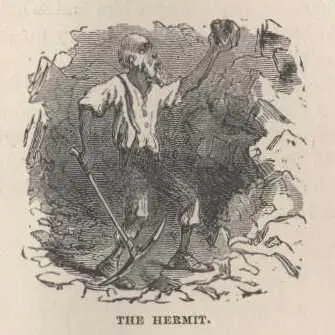
Harry went back to the city. It was evident that his services were no longer needed. Indeed, he had letters from his uncle, which he did not read to Philip, desiring him to go to San Francisco to look after some government contracts in the harbor there.
Philip had to look about him for something to do; he was like Adam; the world was all before him whereto choose. He made, before he went elsewhere, a somewhat painful visit to Philadelphia, painful but yet not without its sweetnesses. The family had never shown him so much affection before; they all seemed to think his disappointment of more importance than their own misfortune. And there was that in Ruth's manner—in what she gave him and what she withheld—that would have made a hero of a very much less promising character than Philip Sterling.
Among the assets of the Bolton property, the Ilium tract was sold, and Philip bought it in at the vendue, for a song, for no one cared to even undertake the mortgage on it except himself. He went away the owner of it, and had ample time before he reached home in November, to calculate how much poorer he was by possessing it.
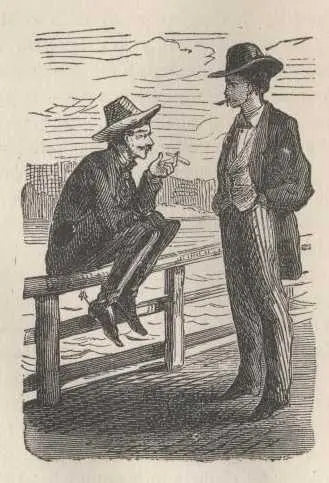
CHAPTER L.
Philip Visits Fallkill and Proposes Studying Law With Mr Montague—The Squire Invests in the Mine—Ruth Declares Her Love for Philip
It is impossible for the historian, with even the best intentions, to control events or compel the persons of his narrative to act wisely or to be successful. It is easy to see how things might have been better managed; a very little change here and there would have made a very different history of this one now in hand.
If Philip had adopted some regular profession, even some trade, he might now be a prosperous editor or a conscientious plumber, or an honest lawyer, and have borrowed money at the saving's bank and built a cottage, and be now furnishing it for the occupancy of Ruth and himself. Instead of this, with only a smattering of civil engineering, he is at his mother's house, fretting and fuming over his ill-luck, and the hardness and, dishonesty of men, and thinking of nothing but how to get the coal out of the Ilium hills.
If Senator Dilworthy had not made that visit to Hawkeye, the Hawkins family and Col. Sellers would not now be dancing attendance upon Congress, and endeavoring to tempt that immaculate body into one of those appropriations, for the benefit of its members, which the members find it so difficult to explain to their constituents; and Laura would not be lying in the Tombs, awaiting her trial for murder, and doing her best, by the help of able counsel, to corrupt the pure fountain of criminal procedure in New York.
If Henry Brierly had been blown up on the first Mississippi steamboat he set foot on, as the chances were that he would be, he and Col. Sellers never would have gone into the Columbus Navigation scheme, and probably never into the East Tennessee Land scheme, and he would not now be detained in New York from very important business operations on the Pacific coast, for the sole purpose of giving evidence to convict of murder the only woman he ever loved half as much as he loves himself. If Mr. Bolton had said the little word "no" to Mr. Bigler, Alice Montague might now be spending the winter in Philadelphia, and Philip also (waiting to resume his mining operations in the spring); and Ruth would not be an assistant in a Philadelphia hospital, taxing her strength with arduous routine duties, day by day, in order to lighten a little the burdens that weigh upon her unfortunate family.
It is altogether a bad business. An honest historian, who had progressed thus far, and traced everything to such a condition of disaster and suspension, might well be justified in ending his narrative and writing—"after this the deluge." His only consolation would be in the reflection that he was not responsible for either characters or events.
And the most annoying thought is that a little money, judiciously applied, would relieve the burdens and anxieties of most of these people; but affairs seem to be so arranged that money is most difficult to get when people need it most.
A little of what Mr. Bolton has weakly given to unworthy people would now establish his family in a sort of comfort, and relieve Ruth of the excessive toil for which she inherited no adequate physical vigor. A little money would make a prince of Col. Sellers; and a little more would calm the anxiety of Washington Hawkins about Laura, for however the trial ended, he could feel sure of extricating her in the end. And if Philip had a little money he could unlock the stone door in the mountain whence would issue a stream of shining riches. It needs a golden wand to strike that rock. If the Knobs University bill could only go through, what a change would be wrought in the condition of most of the persons in this history. Even Philip himself would feel the good effects of it; for Harry would have something and Col. Sellers would have something; and have not both these cautious people expressed a determination to take an interest in the Ilium mine when they catch their larks?
Philip could not resist the inclination to pay a visit to Fallkill. He had not been at the Montague's since the time he saw Ruth there, and he wanted to consult the Squire about an occupation. He was determined now to waste no more time in waiting on Providence, but to go to work at something, if it were nothing better, than teaching in the Fallkill Seminary, or digging clams on Hingham beach. Perhaps he could read law in Squire Montague's office while earning his bread as a teacher in the Seminary.
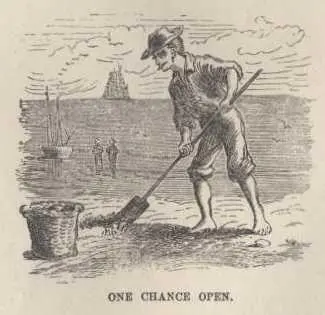
It was not altogether Philip's fault, let us own, that he was in this position. There are many young men like him in American society, of his age, opportunities, education and abilities, who have really been educated for nothing and have let themselves drift, in the hope that they will find somehow, and by some sudden turn of good luck, the golden road to fortune. He was not idle or lazy, he had energy and a disposition to carve his own way. But he was born into a time when all young men of his age caught the fever of speculation, and expected to get on in the world by the omission of some of the regular processes which have been appointed from of old.
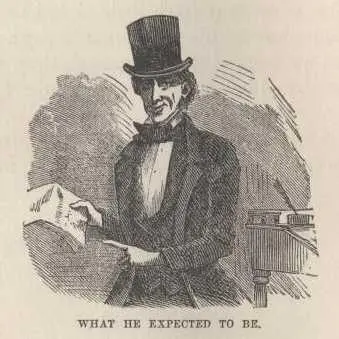
Интервал:
Закладка:
Похожие книги на «The Gilded Age / A tale of today»
Представляем Вашему вниманию похожие книги на «The Gilded Age / A tale of today» списком для выбора. Мы отобрали схожую по названию и смыслу литературу в надежде предоставить читателям больше вариантов отыскать новые, интересные, ещё непрочитанные произведения.
Обсуждение, отзывы о книге «The Gilded Age / A tale of today» и просто собственные мнения читателей. Оставьте ваши комментарии, напишите, что Вы думаете о произведении, его смысле или главных героях. Укажите что конкретно понравилось, а что нет, и почему Вы так считаете.





